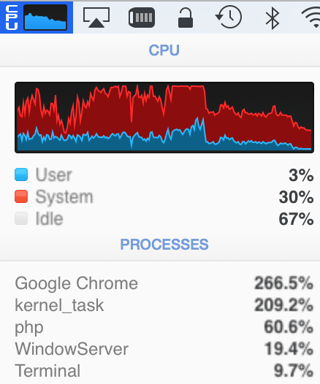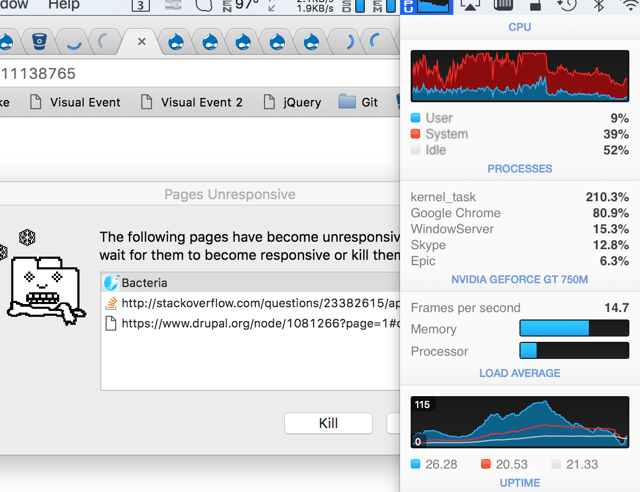I'm heavy web user which requires a lot of tabs being opened during my everyday work (>=50-200 tabs). I'm using Google Chrome browser for couple of years and become very slow and an overkill for my operating system on everyday basis (OS X, El Capitan).
I'm already using minimum amount of extensions, such as OneTab (for saving non-used tabs), Tab Dupectomy (to remove duplicates) and Adblock Plus (for blocking animated ads), blocking flash, and everything else to reduce the memory and CPU processing of multiple tabs. However still every often my system freezes because of Chrome, so I have to kill some background tabs which taking the most resources and freezing my system, but this is only the workaround. Most of the time closing or opening new tab is taking several seconds to complete. I've reported several bugs against Chrome, but it's pointless work (as most of the reports are without resolution for years) and it's just too heavy to use in general (as the feature list is growing) and it's just broken on so many levels.
 ]
]
 ]
]
Note: I've 2.3GHz Intel Core i7 (4 cores) with 16GB of RAM with NVIDIA GeForce, so I don't think my hardware is the issue.
Based on above, I'm forced to change my browser to achieve some better performance during heavy browsing.
It should have the following features:
- HTML5 support,
- tab support,
- keyboard shortcut support,
- quicker than Chrome in terms of simultaneous opened tabs (50-200)
Nice to have:
- open source,
- community support,
- both Linux & Unix support,
- plugin support (to block flash and animated ads),
- different profile support (e.g. switching cookies for the same pages, like People in Chrome),
- ability to disable background processing (for tabs not being in use).
Budget: ideally free, but I'm consider to pay reasonable amount for the better quality.

